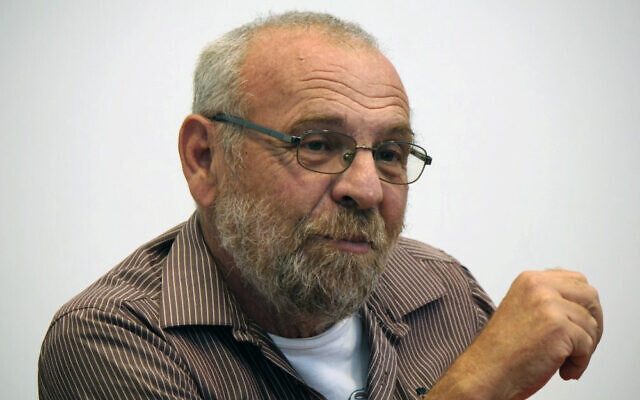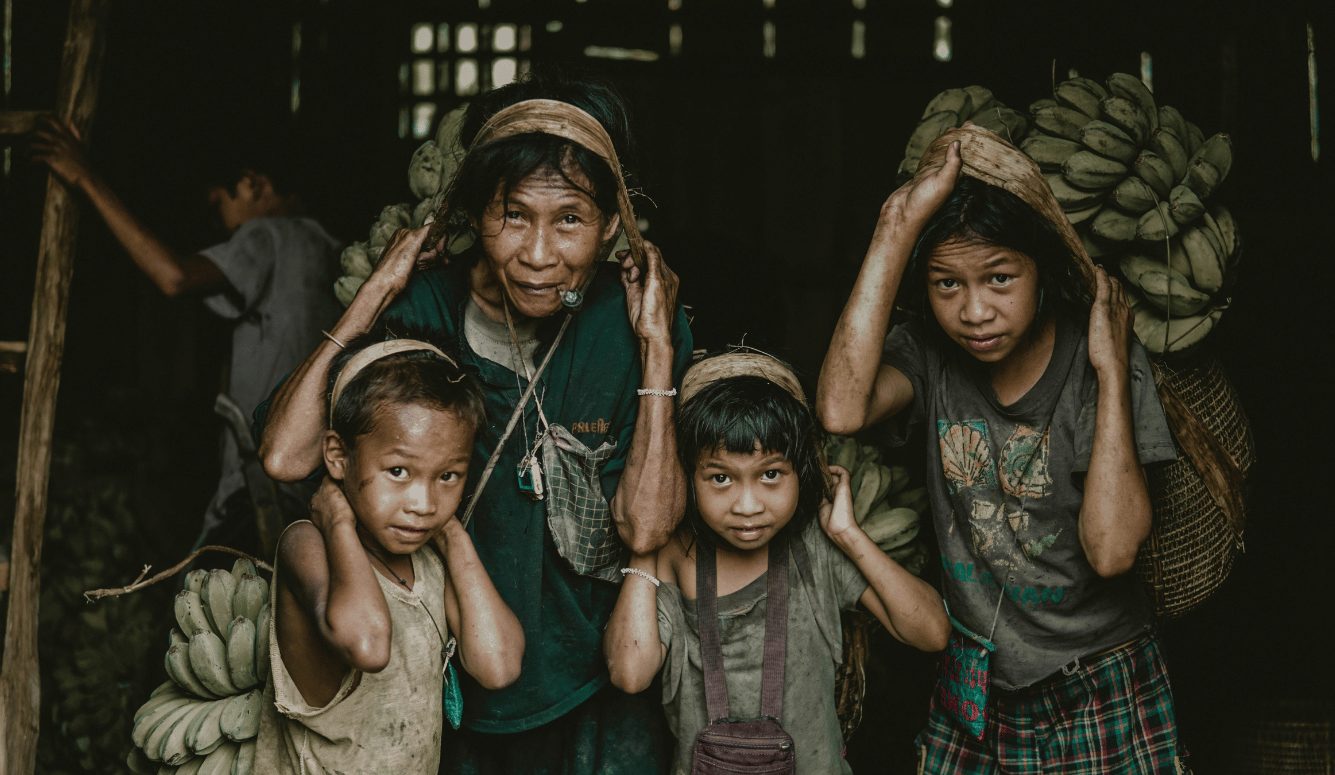Israel
Inside Kibbutz Nir Oz: Dani Elgarat on the October 7 Hamas Attack and His Brother’s Abduction
Pamela Paresky speaks with Dani Elgarat about the 7 October Hamas attack on Kibbutz Nir Oz, the experience of hostage families, the failures of the Israeli government, and the ideological roots of Islamist violence.

Editor’s Note: This interview was conducted by Quillette contributor Pamela Paresky in January 2024. Since the recording, Itzik Elgarat and Holocaust historian Alex Dancyg z”l were confirmed to have died while in Hamas captivity in Gaza. Elgarat’s body was returned to Israel in February 2025 as part of a ceasefire agreement and was buried at Kibbutz Nir Oz. Dancyg, a 76-year-old educator and longtime Yad Vashem contributor, was confirmed dead by the Israel Defense Forces on 22 July 2024. His body was later recovered from a tunnel in Khan Yunis. Quillette extends our deepest condolences to their families and honours their memory.
Pamela Paresky: So, tell me about your brother.
Dani Elgarat: My brother is a member of Kibbutz Nir Oz. He’s 68 years old. He was the maintenance man of the kibbutz. He was responsible for all the maintenance—the gas, the cots, and all the things that the members needed fixed. He’s a handyman, so he knows how to do things. He has two children who live in Denmark. He’s also a Danish citizen. He was married there and later divorced, and then he came to Israel.
PP: Do you also live in Nir Oz?
DE: No, I live in Tel Aviv. Most of my family is from Nir Oz. Three of my brothers and my parents were there. But I don’t live there now.
PP: And Itzik, your brother, was on the phone with you when he was in the safe room?
DE: Yes. Actually, it was Saturday morning. There were rockets, and we saw on TV that terrorists had entered Netiv HaAsara, in the northern part of the Gaza Strip. We didn’t realise at first that something had happened in Nir Oz because it’s about 100 kilometres away. But around 10:30, he called me. He was very nervous, hysterical. He told me the handle of the shelter had been shot at, and he was injured. He didn’t know exactly what had happened, but there was a lot of blood. He said, “My head is crushed.”
PP: Was he bleeding?
DE: Yes, he was bleeding. I tried to guide him on how to stop the bleeding and stay calm. But suddenly I heard something in the background. I didn’t recognise the language. I speak Arabic, but it wasn’t Arabic. It was just shouting. Then he shouted, “Danny, this is the end. This is the end.” And the phone call disconnected. I didn’t know what he meant by “the end.”
PP: That’s terrifying.
DE: I texted my niece’s husband to go and check on him, because he was bleeding in the shelter. He texted me back and said, “Danny, I already killed two terrorists. They are lying in my living room.”
PP: Your niece’s husband said that?
DE: Yes. And he said, “They already threw four hand grenades at me. I need to help myself. If someone gets out, they’re dead.” That’s when I realised that what I had seen on the news in the morning was actually an attack all over the kibbutz and the surrounding areas.
PP: What did you do then?
DE: I tried everything to find out what happened to him. I had an examination done on his phone to trace the signal. We saw that half an hour after he talked to me, the phone crossed the border into Gaza. That’s when I realised he had probably been taken hostage. But I wasn’t sure—maybe just his phone was taken. Later that afternoon, when the army came in, I asked them to check his room because he was wounded there. They told me there was nobody in the room, but there was a lot of blood.
PP: Was there any indication that he had been taken to a hospital?
DE: I asked if he had been evacuated, but they said no. Nobody was taken to a hospital. They said he had probably been kidnapped.
PP: When did you first get confirmation that he had been taken hostage?
DE: Two weeks later. The army came and told me they had done another phone signal examination. They saw that at 4:30pm he was in the middle of Gaza City. I served in the police for many years, and I was stationed in Gaza, so I know Gaza well. When I saw where the phone was, I realised they had taken him to a hospital—I recognised it. It was Shifa Hospital. They took him directly there.
PP: That’s where the confirmation came from?
DE: Yes. The army confirmed he had been taken hostage. Later, when hostages were released, they said they had seen him in the tunnels. He was alive, not in good shape, but alive. He was talking. His hand had been treated.
PP: Was his hand treated in the hospital?
DE: He was in the hospital, and then, when the army came near it, they ran away with him into the tunnels. Since then, we’ve heard nothing. It’s unimaginable.
PP: Did your niece see him while she was there? Was she able to take care of him? Is he with Alex? Do we know if they’re together?
DE: Yes, they’re brothers-in-law. They were together with others. They showed him and spoke with him.
PP: Has any medication gotten to the hostages?
DE: No. They haven’t received any medication. He’s now on the list of hostages who need medication. I don’t believe they’ll get it. It’s just spin by Qatar to show the world they have humanitarian values. But they don’t.
PP: There are still several people from Nir Oz being held, correct? You mentioned that other family members were also kidnapped?
DE: Yes. My sister’s husband was also kidnapped. His name is Alex Dancyg. He’s the father of a child and his physical condition is very bad. He had a serious heart attack and needs medical treatment. We don’t know what condition he’s in now. Someone saw him alive, but I believe his condition is very serious. He’s 75.

PP: And were there other relatives taken or affected?
DE: Yes. Six of my nieces and nephews and their children were in the kibbutz. Nir Oz was the only kibbutz where the army didn’t enter at all that day. No terrorists were killed by the army. The terrorists just did what they did—took eighty hostages, killed more than thirty members, and left. When the army finally arrived, there were no terrorists left. A quarter of the kibbutz was gone. I don’t know if it can ever rebuild itself.
PP: Your sister, who went north, is married to Alex Dancyg, and he is a hostage. Was your sister there when this happened on October 7th, or was she somewhere else?
DE: She was there—in the shelter. She held the door shut for six hours. Her granddaughter was inside with her.
PP: She had two grandchildren with her?
DE: Yes, two girls. She was in the shelter with them. They shot at the door, but she didn’t open it. She just held the handle for six hours. She saved them. She really saved them.
PP: Why wasn’t Alex also in the shelter?
DE: Alex was in his own house. They live in separate houses. I think Alex just came out and said, “Take me.” He didn’t try to fight them. He didn’t resist.
PP: And your sister and Alex have a son and a daughter who also live there?
DE: Yes. One of their two houses was not entered by the terrorists. Their son was with his wife and three children in the shelter. They were saved.
PP: And your niece’s husband—he was the one who killed terrorists, but they both survived?
DE: Yes, both survived.
PP: Do they have children? Were the children with them?
DE: Yes, their children were with them.
PP: So, how many family members total were in the kibbutz?
DE: About twenty. But I know everyone in Nir Oz. I know every face. When they published the pictures of those who were taken—Cooper, Megidish, and Peri—it was shocking. I didn’t recognise two of them. I knew them as children. They had changed. They were just shadows of themselves.
PP: You’re saying they no longer looked like themselves?
DE: No. They were not the same. Now, when they talk about giving them medicine—I say, they don’t need medicine. They need to be released. They’ve already died—mentally, they’ve died. They are just bodies waiting, hoping to see their family one last time.
PP: How are you doing? How are you managing? This is a lot.
DE: I’m trying to do everything I can. But I know we’re not doing enough. We’re fighting against the government. We’re fighting against Islamic extremism. We’re fighting against people who think justice isn’t the goal of this war—who think the goal is to return to Gaza and live there, even if it’s on the graves of our relatives.
PP: So your life has been turned upside down?
DE: Completely. People count days—100 days. For me, it’s just one long nightmare. One endless day. But we don’t have a choice. They, over there, suffer more than we do here. So we try to keep our perspective.
PP: What can people around the world do? You’re travelling, talking about your brother and the conditions.
DE: People need to support us. They need to amplify our voice. Talk to anyone with influence in their countries. We’re trying to pressure our government from all directions. And we need help from the world—from Israel, Egypt, and Qatar. That’s why we’re speaking out.
PP: You’re a scholar of Arabic and Islamic studies, right?
DE: Yes.
PP: Have any of the countries involved in the Abraham Accords offered help?
DE: No. They’re sitting on the fence—not here, not there. They want to keep the agreements alive but still stay connected to Israel. I know Islam. I teach Islam. All the Islamic countries, except maybe one, are ashamed of what Hamas did. Because if it was in the name of Islam, it’s a disgrace.
PP: Even Israeli Arabs are not involved?
DE: No, because they’re ashamed too. This isn’t an Israeli–Palestinian conflict. Hamas’s biggest enemy is the Palestinian Authority. They committed crimes against humanity—against Jews, Muslims, Christians—everyone. It’s like 9/11. They didn’t just target Jews or Christians. They would kill anyone who doesn’t think like them.
PP: So you’re speaking about the difference between Islam and Islamism?
DE: Exactly. This is not Islam. There’s no connection. It’s not a religion. It’s like Nazism. They want to kill anyone who doesn’t believe what they believe. Before October 7th, the Islamic Fatwa Council issued a fatwa against Hamas for oppressing their own people. So yes, it’s not Islam.
PP: And you’re saying their goal is an Islamic empire, like ISIS?
DE: Yes. They want to build a caliphate—an empire. That’s their ideology. You can’t talk to them about land or compromise. They want to conquer. It’s the same goal as ISIS. The same as Iran.
PP: And they’ll strike anywhere?
DE: Yes. This time it was us. In 2001 it was the US. They said “Allahu Akbar” as they killed children and mothers and raped women. What kind of God allows that? What kind of religion? It’s sad. It’s evil.
PP: If there were a deal and all the hostages came back, what would happen? Would Israel be safe?
DE: Israel was never Switzerland. We’ve been fighting since we established the state. The security was never perfect. But we can start again. And if we need to fight Hamas again, we will. We’ll do it later. What’s important now is to show that life is our highest value. People need to believe that the government and society will be there for them. The strength of society is more important than the strength of the army. We had the strongest army—but we were divided. And they attacked us knowing that. They thought society would collapse.
PP: Before October 7th, there were even reservists refusing to show up.
DE: Yes. But now we say, “Together we will win.” We’re united. I hope it stays that way. Because to change people, something dramatic must happen. I hope October 7th was dramatic enough.
PP: Amen.
DE: Amen.
PP: Thank you very much.






